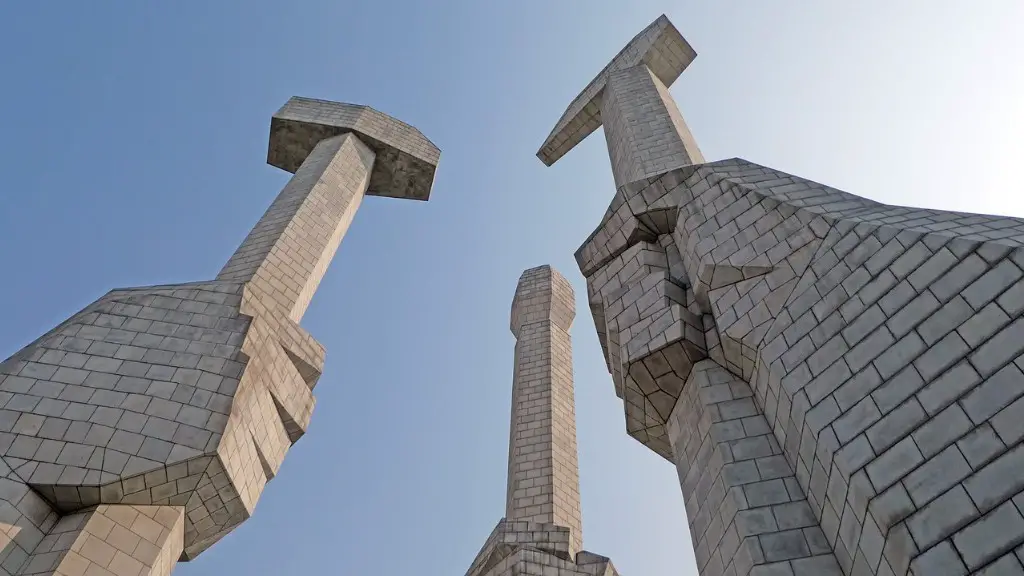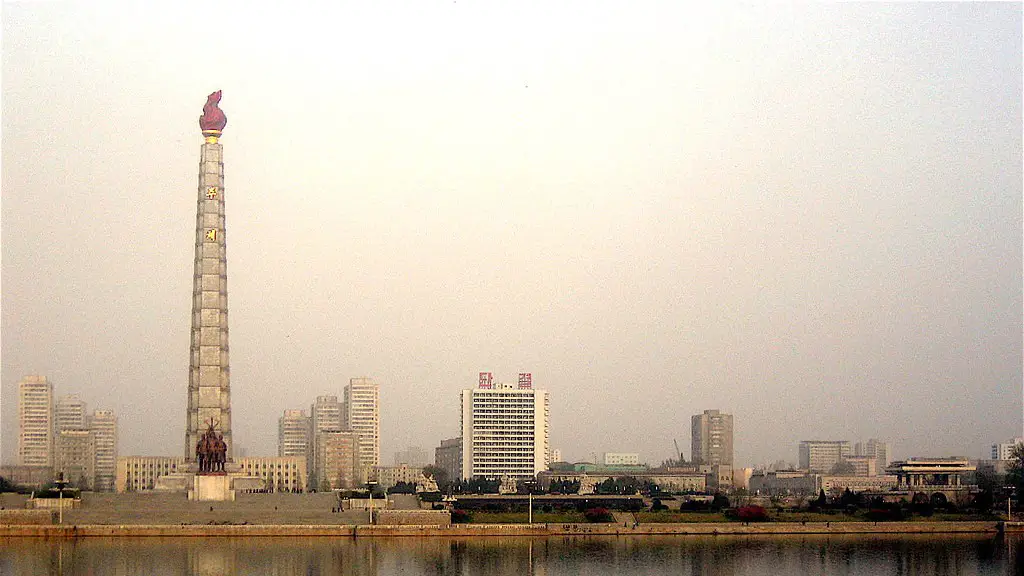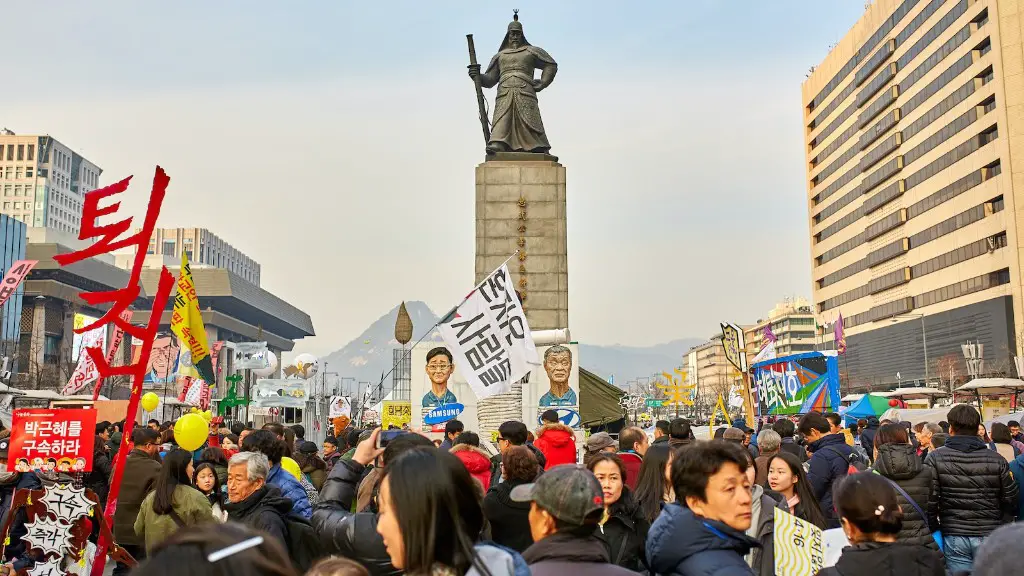The situation between the US and North Korea remains tense with the possibilities of escalation. As the US Coalition aims to contain North Korea’s nuclear weapons and ballistic weapon programs, it’s time to reconsider if the US really stands a chance in this competition.
Naturally this begets the ever pressing question; Will we win against North Korea?
North Korean Military Capabilities
Lead by the unpredictable and reclusive leader Kim Jong-Un, North Korea has increased its military capabilities in recent years. Regardless of the sanctions imposed on it by international organizations, North Korea has managed to acquire warships, fighter jets, artillery, ballistic missiles and even nuclear capabilities.
Reliable sources indicate that North Korea pieces together its weaponry from parts smuggled from China, making it incredibly difficult for North Korea to be deterred. However, as evidenced by past military interventions, North Korea’s weaponry is not as powerful as that of its neighbor.
Professor Yang Si-Ping from Seoul University said: ‘It is true that North Korea has the the upper hand when it comes to military capabilities, but the US coalition is stocked with forces that have shown immense loyalty in past missions and have the capacity to generate effective strategies involving the latest technology.’
US Resolve
As the US coalition has proven up to this point, it has the will and strength that makes it a formidable presence in international matters. During the 2017 US-South Korea joint exercise, the US conducted 100 drills with Marine Corps, Navy and Air Force.
Furthermore, President Trump has stated that North Korea has ‘gotta behave’ and that the US would use their military to lay down their demands. He has also openly offered South Korea and Japan support to help contain North Korea in the future should any hostilities arise.
David Randolph, a retired US Major General and Senior Fellow at the Council on Foreign Relations said:
‘ The US will not tolerate any offensive from North Korea and will push for any necessary actions to ensure peace between the two nations.”
Economic Strength
When it comes to economic capabilities, the US has the upper hand when stacking it up against North Korea. The US is one of the most economically powerful nations in the world and it has the power to place further sanctions and trade embargoes on North Korea.
Should such sanctions be placed by the US, it would limit North Korea’s wealth and its ability to carry out certain weapons developments and future aggressive actions. In addition, the US is able to wield its financial might to recruit international organizations, such as China, to support it in its efforts.
Victor Cha, Senior Adviser and Korea Chair at the Centre for Strategic International Studies says:
‘By using economic strategies and strategies involving stability, the US Coalition has the means to contain North Korea’s military and economic activity.’
Public Opinion
Public opinion is one of the major factors when it comes to deciding the outcome of any conflict. Because the US is one of the World’s most powerful nations and its citizens are the driving force behind its decisions, their opinion is particularly noteworthy.
Most polls conducted in recent years have pointed towards an overall disapproval and wariness of North Korea’s military ambitions. A Gallup poll has calculated that about 79 percent of the US population views North Korea’s possession of nuclear weapons as a critical threat, which is an extremely high figure.
Joseph Yun, Former Special Representative for North Korea Policy at the Department of State commented :
‘ The American people are behind the US Coalition’s efforts to contain North Korea. What you see in the polls is the unwavering support from within the US and the desire for their voice to be heard.’
US-South Korea Alliance
The US-South Korea alliance is one that has endured since the Korean War and is one of the principal goals of the US’s foreign policy. With South Korea’s foreign relations with North Korea being almost non-existent, its dependance on the US’s military presence and aid is now the principle aim of its diplomacy.
South Korean President Moon Jae-in has openly reiterated his nation’s support in US operations and intelligence regarding North Korea, claiming he ‘strongly believes’ that the US can protect him from North Korean aggression. Similarly, the US has also promised South Korea its full support in the confrontations that may arise.
Andrew Yeo, Associate Professor of Diplomacy and International Relations at The Catholic University of America stated:
‘The US-South Korea alliance has been a cornerstone of US foreign policy for decades and continues to be. The partnership between the two nations has shaped regional security for the better and continues to ensure the safety of North East Asia.’
Humanitarianism
The US Coalition has taken a strong stance in helping civilians that may have been affected by North Korean aggression. US NGO’s such as Human Rights Watch are fighting to bring acknowledgement to human rights violations and see justice is served to all that have suffered in events such as the forced famine and sanctions imposed on the North Korean people.
ON top of this human aid, US-South Korea cooperation has built hospitals, schools and even roads in North Korea, amounting to a total of $8.3 billion in aid and investment since 1995. In addition, the US has received permission to visit detention camps and refugee camps in order to ensure humane treatment of all North Koreans.
Kaitlyn Stewart, from the US Organisation Against North Korean Abuse commented:
‘Our organisation works closely with the US to provide a safe and humane environment for North Koreans. By applying the necessary pressure, we are hoping the North Korean government will listen to our demands for accountability and justice.’
The Role of China
China remains a major player in the region and has already thrown its hat into the ring to try and broker a peaceful solution between US and North Korea.
China’s current involvement in the burgeoning conflict is to establish a ‘freeze for freeze’ deal which entails the US cancelling their military drills in the region in exchange for North Korea stopping further nuclear weapons testing. This would provide a platform for the US and North Korea to openly discuss their demands and desires in a safer environment than outside a nuclear power.
Amy Cheung, Senior Analyst at the Council on Foreign Relations stated:
‘China’s involvement in the conflict would bear a great deal of promise and should be welcomed by both the US and North Korea. China has already shown itself to be a diplomatic force between the two sides and neutrality could be the key to finding a viable solution for both sides.’
US Assets
When analysing the conflict between the US and North Korea, it’s important to evaluate the differences in military capability. It is clear that the US’ military might is infinitely stronger than North Korea’s, with the US having an array of advanced weaponry and resources at its disposal in the region.
US coalition forces boast multiple nuclear weapons in their arsenal along with a total of 23 warships and 300 fighter jets. Such numbers give the US an advantage in regional threats, with the capability to provide total containment for North Korea through air, land and sea.
Sean Jones, Former Commander of the US Pacific Fleet commented:
‘The US is capable of projecting military power across North East Asia, with the power to respond to any potential aggression from North Korea should the situation arise.’
Implications of Conflict Escalation
Given the current tensions in the region, the US has taken care to plan ahead to mitigate any damage that may arise from further escalation in conflict. Should the US truly have to respond to North Korean aggression, it will have to take into consideration the long-term economic and political implications that comes with such a move.
The US Coalition would have to keep in consideration the effects of diplomatic tension with allies such as South Korea and Japan, which have shared a long-standing and arguably successful alliance history.
Professor Chang Se-Whan of Seoul National College of Science and Technology said:
‘The US is aware that military action is a final option and is taking steps to create a peaceful resolution by employing the resources from regions allies.’
Tech advancements
To ensure its success in a potential conflict, the US has concluded that the latest advances in technology must be implemented in military operations.
The US navy and air force are gradually transitioning to modernised networks for communication, navigation and information exchange. Furthermore, ongoing research points to the implementation of robotics in naval battles, with the US Marines’ Robotic Squadron showing promise in its live-fire drills.
Lieutenant Commander Ken Kim of the US Navy said:
‘Modern tech advancements are the US’s strongest asset when it comes to containing the power of North Korea’s military. We are confident that the tech currently available in the US Coalition’s arsenal is enough to give us an edge and should fit our needs in any situation.’
Strict Economics and Sanctions
To help weaken North Korea’s economic strength and throttle its military ambitions, the US has enforced strict sanctions on it. This has been done through UN Resolutions, with China and Russia providing their support for the measures.
US imposed sanctions via the UN include restrictions on North Korea’s exports, imports and the closure of banks and financial institutions that go against the sanctions. This has been successful in preventing the North Korean regime from accessing funds to bolster their military.
Darlene Tung, economist analyst for the RAND organisation said:
‘ The imposition of sanctions provides a reliable way for North Korea to lose the economic resources it needs to expand its military. The economic pressure is one of the strongest tools currently available in stopping North Korea’s military aspirations.’
Conclusion
With such a comprehensive analysis of the US and North Korea’s capabilities and strategies, it is clear that the US has the economic, diplomatic and military strength to contain North Korea’s advances.
Although it should not be underestimated, the US remains confidant in its ability to contain its forces and provide a safe solution to the situation. With the US-South Korea alliance working in tandem, further plans and technologies in the pipeline and international sanctions in place, the US stands a solid chance in any conflict with North Korea.





